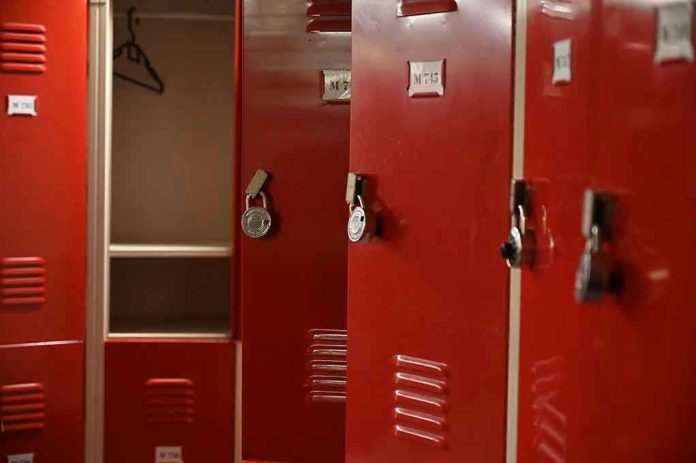
A Tennessee school district just banned doctor’s notes as valid excuses for student absences, leaving parents and taxpayers asking: when did common sense get kicked out of the schoolhouse?
At a Glance
- Lawrence County School System (LCSS) will no longer accept doctor’s notes as justification for student absences starting with the 2025–2026 school year.
- Students missing more than 10% of school days may face severe penalties, including referral to juvenile court, loss of privileges, or even grade failure.
- Parents and medical professionals across the county are outraged, calling the policy punitive and a threat to family rights and children’s health.
- The policy is part of a wider crackdown on chronic absenteeism but eliminates the flexibility families have relied on for generations.
Lawrence County School Bans Excused Absences, Sparking Outrage
Lawrence County, Tennessee’s school system has thrown out a century of sanity by declaring that, from this fall, no student absence—no matter how legitimate—will be excused with a doctor’s note. The new policy, issued in July for the 2025–2026 academic year, is part of a crackdown on what administrators call a “nationwide epidemic” of chronic absenteeism. But what about the real epidemic—children getting sick and parents trying to do the right thing? In a move that’s left parents and medical professionals stunned, the district will now penalize students for absences, even when their own physician says they’re too sick for school.
This hardline stance comes after more than 1,100 students in the district crossed the state’s “chronically absent” threshold last year. The district’s response: no more excused absences for routine illness, period. The only exceptions are for chronic conditions, family emergencies, or religious observances. If a student misses eight or more days—whether for the flu, a broken arm, or pneumonia—they risk losing their driver’s license, prom privileges, or even their ability to graduate on time. If they rack up just three absences, parents can expect a “home visit” from school officials. If the absences hit eight, juvenile court could get involved.
Parents and Doctors Push Back Against District’s “One-Size-Fits-All” Policy
Parents across Lawrence County quickly blasted the policy as absurd and dangerous, especially for families with children who have legitimate medical needs. Social media lit up with frustrated parents sharing stories of kids battling chronic illnesses or sudden fevers, now facing threats of court action or academic penalties for staying home sick. Medical professionals, meanwhile, warn the policy undermines their judgment and could force parents to send sick children into classrooms—risking outbreaks of illness and violating basic health guidelines.
The school system claims exceptions exist for chronic illnesses, but the process for getting these absences approved remains vague and bureaucratic, according to both parents and local healthcare providers. Many families feel powerless, caught between protecting their children’s health and risking harsh school penalties.
Lawmakers, Educators, and Community Leaders Join the Debate
Teachers, who are tasked with enforcing the policy, find themselves caught between a rock and a hard place. They want students in school but know firsthand that not every absence is a case of truancy. Some local officials worry the policy may flood the juvenile court system with students and families who would otherwise be managing routine health issues at home.
District administrators insist the crackdown is necessary to boost attendance and state funding. But critics argue that the policy is tone-deaf, especially coming out of the pandemic era, when family flexibility and respect for health concerns should be paramount. They point out that this rigid approach may disproportionately punish students with chronic health conditions, disabilities, or limited access to healthcare and transportation. For rural families already stretched thin, the new rules add another layer of stress and bureaucracy.
Policy Sets Precedent for Other Districts, Raises Questions About Family Rights
Lawrence County’s policy could set a dangerous precedent for other districts desperate to improve attendance numbers, regardless of the cost to families and children. Some education experts acknowledge the need for stronger attendance policies but warn that blanket rules like this do more harm than good. Rigidity rarely solves the real problem—it just shifts the burden onto families, especially those already dealing with hardship.
The policy has already become a flashpoint in local school board politics. Parent groups are organizing, and legal advocacy organizations are reviewing whether the policy might violate student rights under state or federal law. As the school year begins, all eyes are on Lawrence County, waiting to see if common sense, family values, and the basic right to care for a sick child will make a comeback—or if bureaucratic overreach has found a new home in Tennessee’s heartland.
Sources:
News9: Doctor’s Notes Will No Longer Excuse Absences for Tennessee School District
Lawrenceburg Now: Lawrence County School System Announces New Attendance Policy
Instagram: Parent Advocacy Group Statement
LCSS: Parent and Student Resources



